Dana Gioia’s battle for the future of the Arts, literature and critical thinking in America
Dana Gioia stepped through a Romanesque archway, looked at the stone columns down Pennsylvania Avenue and realized he needed a form of “self-brain surgery” — he had to escape Washington, D.C.
It was 2009 and the internationally known poet had just spent six years fighting to rebuild the National Endowment for the Arts, convincing far-right congressmen that it could be more than a controversy-generator around Jesus’s image splashed in body fluids. Gioia had reluctantly agreed to lead the agency on the heels of Newt Gingrich getting House Republicans to vote it out of existence, only to be stopped at the last minute by a handful of senators. The endowment was still under nonstop attack from conservative think tanks when Gioia took over.
Washington insiders looked on with cynical anticipation. They were eager to see how Gioia — a California writer to his core — would navigate the NEA’s vast political minefields. But Gioia scarcely had time to worry about that before he faced a more existential problem. A new government report questioned the very future of reading in the United States. Gioia and the NEA were about to get involved in the fate of American intelligence.
Six years later, Gioia was leaving his post as things were looking better for American letters, at least with younger readers. But as he stood under the endowment’s headquarters in the old capital post office, a masterpiece of sculptures and Gothic dormers he’d saved from being sold, he felt a deep sense of unease. And it wasn’t a premonition that the architectural treasure he’d preserved would soon become Donald Trump’s glitzy hotel. No, for Gioia, it was a personal kind of foreshadowing. He was so exhausted from the blood sport of D.C. politics that he couldn’t write any more. He worried he might never write again.
For someone who had won the American Book Award and had a poem translated into 12 languages, it was a hard future to contemplate.
Slowly, by spending months alone on an island, Gioia began finding a new writing voice. But just when his creative powers were returning, Gov. Jerry Brown asked him to take up the mantle of literary warrior again, this time fighting to bring reading back into the public sphere across California. Gioia couldn’t walk away from the request, or the challenge. Yet he stepped into the role just as wildfires were about to engulf his own life, wreaking devastation and tragedy across his state and leaving many unsure if art really has a place in healing.
Crisis of the Mind
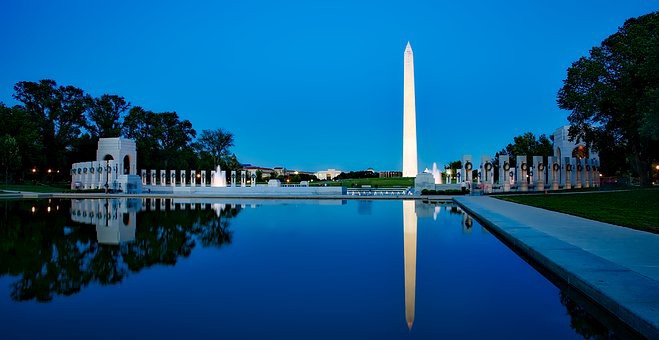
In 1953, Ray Bradbury’s Fahrenheit 451described a future where novels are relics and human thought is enslaved by interactive screens. But when Gioia first arrived in Washington, D.C. in 2003, such predictions were hardly a threat national leaders were talking about.
That would change.
Gioia didn’t know what to expect when he took the helm of one of the world’s most prominent arts agencies. He knew Republicans had changed tactics from trying to legislate its demise to simply eviscerating it by a thousand budget cuts. But Gioia did have one strong ally: then-First Lady Laura Bush, a career librarian and founder of the Texas Book Festival.
“The NEA had few friends,” Gioia said. “It was seen by the right as the purveyors of smut and blasphemy and seen by the left as the inept purveyors of smut and blasphemy. Everyone said there was no way to change the status quo, because there had been too much blood spilled on both sides.”
But Gioia thought he could secure the endowment’s future if he made its mission bringing the best art to the most Americans possible. He was months into that process when the real punch came. The NEA had directed the U.S. Census Bureau to conduct a large survey on participation in the arts. Building on similar studies in 1982 and 1992, the survey produce a startling conclusion: With the rise of digital media, less than half of U.S. adults were now reading literature. The survey found there had been a 10 percentage-point decline over two decades, which was a loss of 20 million potential readers. The drop spread across every age group, every ethnic group, both genders and all income levels. Worse yet, the steepest decline was among those 18 to 34, who 20 years earlier had been the most likely age group to read a book.
The survey also indicated this backsliding of a literate America had rapidly accelerated with the advent of social media networks, streaming services and all-consuming video games. Experts extrapolated that, if the trend continued, reading as a pastime would be all but nonexistent in another 50 years.
And that would matter far beyond just book sales.
Gioia’s team had studies showing that people who didn’t read were less likely to vote in elections, volunteer for charities, attend public events and support cultural institutions. And Gioia was an early prophet in sensing there was more to the peril. Later, neurological research and MRI testing suggested that reading increases brain connectivity and improves basic human empathy, while exposure to most screen-based media has the exact opposite effect. Based on the best available science, the swift decline in reading could be seen as an epidemic jeopardizing America’s entire civic fitness and intellectual destiny.
“I think we perceived, quite rightly, that this was a crisis,” Gioia recalled.
Many working on the front lines of academia saw that crisis, too. One was Janis Cox Jones, an English professor who taught Gioia’s poetry and criticism for years at Folsom Lake College. Around the time Gioia gave a reading in Folsom in 2005, Jones started to notice a sharp decline in students’ writing skills, which seemed related to fewer and fewer of them reading.
“The top 10 percent of students were as good as ever, but suddenly the bottom third were so far down that they were well below remedial high school reading levels,” Jones recalled.
But Gioia was doing more than compiling reports. He made a controversial decision to steer what was left of the NEA’s resources away from the art world’s power base on the East Coast and instead throw them into a wider intervention on reading. That involved launching several new initiatives.
The first was The Big Read, which used NEA grants to help entire communities read and discuss the same work of literature. The endowment also produced a compelling series of audio documentaries about writers that were made available through the then-emerging phenomenon of podcasts. It was a digitally engaging approach to reach new, younger audiences.
Another venture Gioia spearheaded was Operation Homecoming, which allowed veterans returning from war zones in Iraq and Afghanistan to process their experiences through free writing workshops. Funded in part by the U.S. Department of Defense, it led to thousands of service members getting rehabilitative therapy through their own creativity and the power of the written word.
Gioia’s final two projects focused on youth outreach. One was Poetry Out Loud, a push to get high schoolers interested in great literature by having them memorize and perform poetry in a local-to-national competition. It quickly spread to high schools in all 50 states. Gioia’s last project was called Shakespeare in American Communities, which brought high-quality productions of the Bard’s plays to public schools.
“We would see the way it could power kids’ imaginations, broaden their vistas of the world and help them understand their own complicated experiences,” Gioia said. “I think when young people don’t get exposure to the arts, they can have trouble understanding how life and culture really works.”
Burned out though he was, Gioia left the endowment in a good place. The countless days of traveling with Republican congressmen to their home districts, showing them veterans recovering through writing and students coming to life around poetry throw-downs and Shakespearean duels, had finally gained the NEA some new allies. Congress actually increased the endowment’s budget every year Gioia was running it. When the torch was passed to an Obama appointee in 2009, there was a bipartisan vanguard on the Hill ready to protect the arts. Equally important, new studies were underway that pointed to more young people reading books.
But when Gioia’s flight left Washington, D.C. in 2009, he wasn’t sure if his own life or art would ever be the same.
Exile from Main Stream
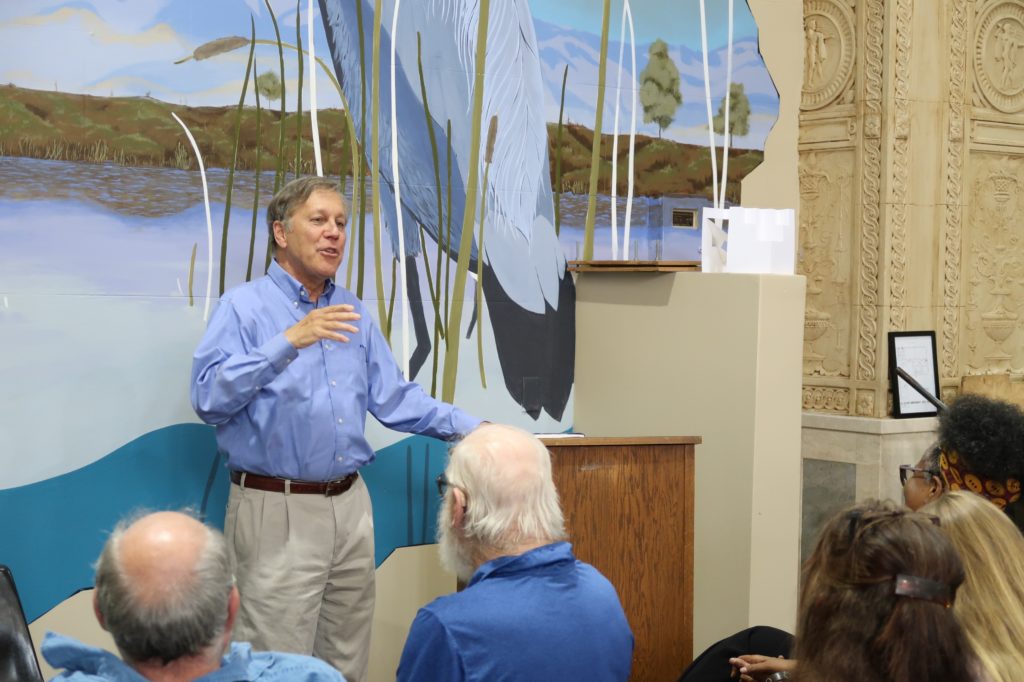
Gioia had always loved dusk on the West Coast, seeing the diamond snow of the constellations, watching the gold glimmer of Mars hanging low on the night. Once he’d made his way to the tiny San Juan island of Waldron, he could finally see those starry vistas opening for him again.
He turned to his own dilemma — the question of whether he’d write again. He stayed in a small cabin on a garlic farm. There was no power, no plumbing and no phone. What the island did have was silence. Gioia spent his days wandering its rocky beaches. In the evenings, he ate cold food by candlelight. Sometimes, he watched the sea shimmering from the edge of a 19th century ruin called Crum’s Castle. It was a time of self-banishment, but it was liberating.
Years before, Gioia’s writing career had been launched by another period of exile. As a teen, he was mesmerized by writers and poets of the western landscape, especially those who tackled the rugged majesty of California. After graduating from Stanford Business School, Gioia only experimented with such prose-painting in his free time. He was too busy climbing the ladder at General Foods Corp. And that also meant living in New York City.
In 1982, Gioia started penning a poetic memory of the Golden State. He was dreaming of its scorched grass and heat-beaten ridges, of its gliding, brass-colored slopes in the grip of summer. It all poured out on the page. He called it “California Hills In August.” The poem soon appeared in The New Yorker and then became the cornerstone of his first book, Daily Horoscope. It was eventually translated in countries from northern Europe to Southeast Asia.
Walking alone on Waldron island in 2009, Gioia was starting to hear calm cadences and serein rhythms in his ear. Away from D.C.’s blaring cab horns, and the gleeful Game-of-Thronary of Capitol Hill, Gioia could focus on birds drifting over the shoreline, on sunlight cutting spider webs, on the color of waves battering rocks.
“It took a long time to clear my mind,” Gioia remembered. “I found myself. It was the solitude and the beauty … I felt a kind of divine presence of nature.”
Few knew it, but Gioia was writing again. To some that wasn’t a good thing. He’d had enemies in the literary world since 1991, when his essay in The Atlantic titled “Can Poetry Matter?” caused a firestorm. In it, Gioia argued that many American poets were happy to be part of an insulted, irrelevant group of professional obfuscators mainly subsidized by universities. Gioia doubled down after the backlash, railing against “the bankrupt theory of the perpetual avant-garde” he believed was alienating readers from modern verse. And of course, when Gioia ran the NEA, the only poets to agree with his funding decisions were those sharing his belief that “there’s no point in literature if it’s not for real people.”
But regardless of what his ivory tower critics thought, Gioia felt the creative winds running through him again. His time on Waldron inspired a new book of poems, Pity the Beautiful.
Things were looking up. Gioia was teaching literature at the University of Southern California part of the year and spending the rest jotting down verses at his home in Sonoma County. He was settling back into his dream of being a full-time writer when he got a surprise call from Gov. Jerry Brown’s office. The bookish governor, sometimes called the “philosopher king,” summoned Gioia for an interview. Within days, Gioia was named the 10th poet laureate of California.
“It was a somewhat mysterious process,” Gioia acknowledged. “When it was announced, it all happened so fast that I didn’t have a lot of time to think.”
But the wheels were turning for Gioia soon enough. He decided that his laureateship could be a vehicle for inspiring counties to host more literary events. He also realized the best way to do it would be through a statewide odyssey that no modern California writer had ever undertaken.
From the Ashes
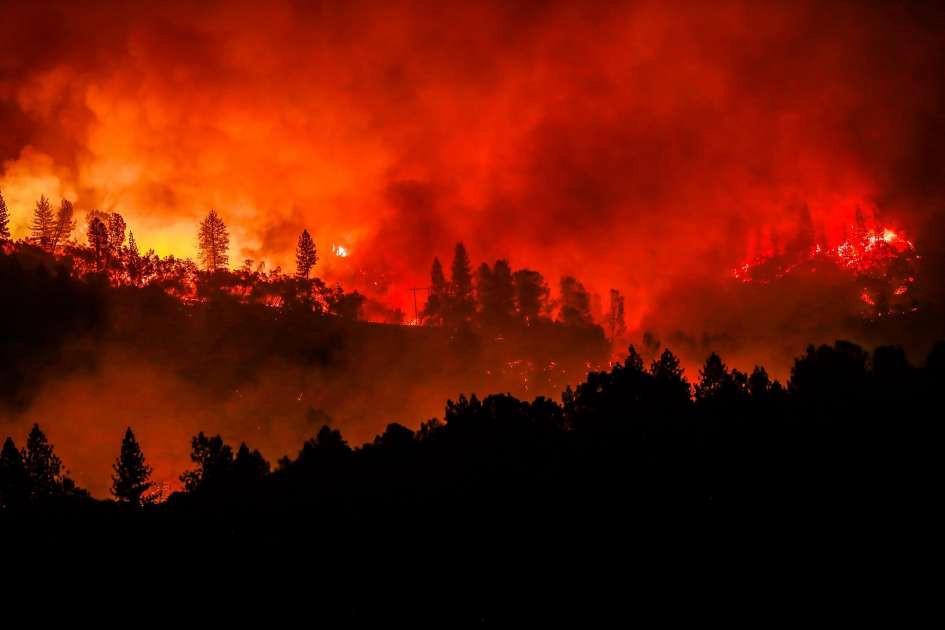
A billowing dome of smoke crested over the ridge. It was October 9, 2017 and the Tubbs Fire was burning near Gioia’s home of 22 years, on a hilltop overlooking Sonoma’s rolling woodlands. He and his sons quickly tried to rescue as many things as they could grab.
On the first morning of the inferno, a hellish red glow pierced the darkness just one hill away from Gioia’s property. A shift in the winds ultimately saved his home, though many of his neighbors were less fortunate. The fire killed 22 people, incinerated 2,800 houses and charred 35,000 acres in and around Santa Rosa. His entire community was grieving.
The threat of wildfires had been on Gioia’s mind even before the catastrophe. It was tied in a strange twist of fate to his new mission as California’s poet laureate.
Gioia had decided to hold public literary events in all 58 counties. He thought if he partnered with local writers and Poetry Out Loud winners, he could remind young and old alike about the special energy that flows through gatherings around books. He was convinced that it was especially important in California’s most rural places.
“I decided if you’re going to be chosen to represent the power of literature, and the importance of literacy, then you need to go everywhere,” Gioia explained. “Mostly I visited small towns … It’s not about the size of the audience, it’s about the quality of the event.”
He hosted an event in San Joaquin County that Paula Sheil won’t forget. Sheil is president of a nonprofit operating Stockton’s The Write Place, a center that offers writing workshops for kids, as well as introducing them to book binding, paper making and letter pressing. The center hosted Gioia’s San Joaquin appearance, which drew a full house, including high school and college students.
“His performance was so earthy and humble and human,” Sheil recalled. “And it wasn’t condescending. He didn’t make us feel like Stockton wasn’t worthy of an event like this.”
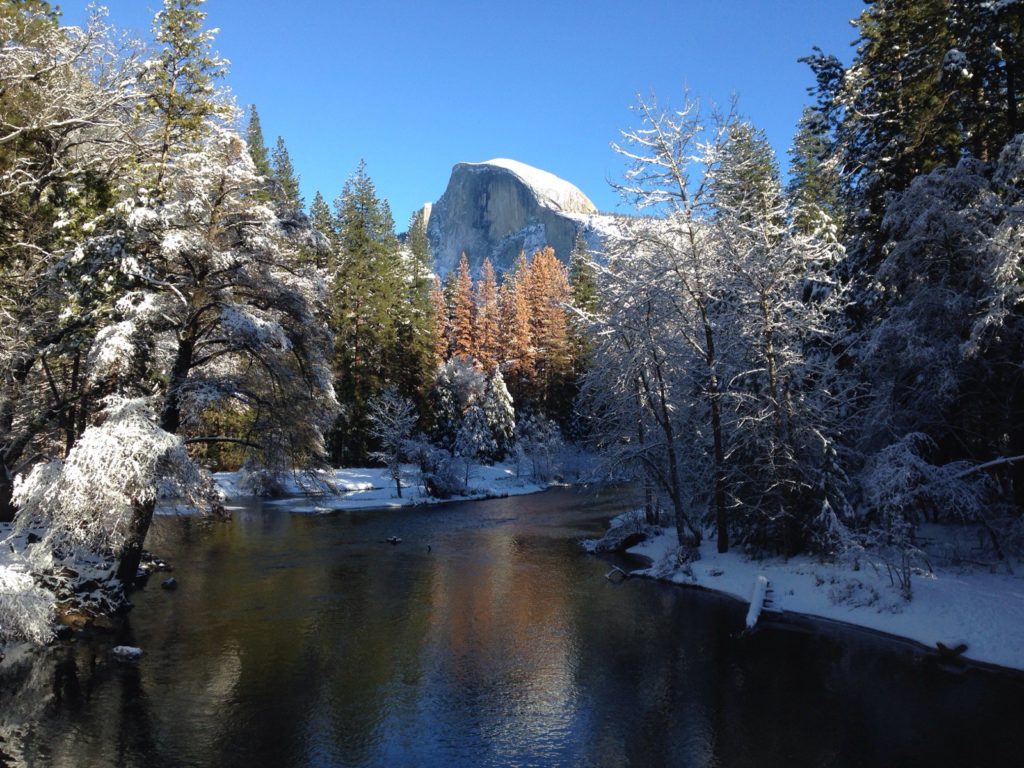
Over three years, Gioia’s long road tour has drawn similar crowds, and reviews, from Siskyou County to Tuolumne. On July 13, 2017, a large audience packed the garden behind a tavern in Mariposa County to hear Gioia speak. Two days later, the Detwiler Fire erupted there, blackening 80,000 acres, consuming 58 homes, burning well into Yosemite National Park.
The new era of fear and mourning was only intensified by last month’s Camp Fire, which destroyed Paradise and took at least 86 souls with it.
As the state’s poet laureate, Gioia is the closest there is to an official elegist for our once-golden hills. While he doesn’t offer simple answers for how to heal, he does know that literature — that all art — has a way of helping people breathe again.
Gioia knows that from the most painful moment of his own life. In 1987, he and his wife Mary’s first son, Michael Jasper, died of Sudden Infant Death Syndrome.
“We had this beautiful, happy, healthy little boy,” Gioia remembered of his four-month-old. “We were shocked by how joyful we were to be parents. When he died, it plunged us into a depression, a sadness and a mourning, that lasted for years.”
Over time, the poet described his child’s passing as a numbing doorway that introduced him to other parents suffering in their solitude. He says it thrust him into “a secret society that nobody wants to be in.” But the death also inspired some of Gioia’s most moving art, including his poems, “Planting a Sequoia” and “Majority.”
Gioia stresses that contemplating his loss — the fragility and mutability of life itself — spurred him into the biggest decision of his career — to leave his corporate job in 1992 to write full-time. He didn’t care about money anymore. He just wanted to pursue art and empathy, comradery and creativity. It was a risky move since his wife was pregnant again. But Gioia quickly landed work as a correspondent for the BBC and as editor of one of the nation’s most influential poetry anthologies. He also published a book of verse dedicated to Michael Jasper called, The Gods of Winter.
Today, Gioia hopes that the thousands of Californians he’s read to over the last three years and who he’s brought out to events to hear other writers and budding young poets, will remember that literature can be a bridge to human connection even in our very worst moments.
“Wisdom begins by recognizing that, while we control some things, ultimately our lives are beyond our control,” Gioia said. “When bad things happen, we should not try to hide from our own grief. You need to accept the sorrow and trust where it will lead you.
“Where art helps is to provide powerful summaries of other peoples’ experiences. When these things happen, we feel isolated. And while art won’t eliminate the pain, it does reconnect you to others and give you perspective — and it gives you hope.”

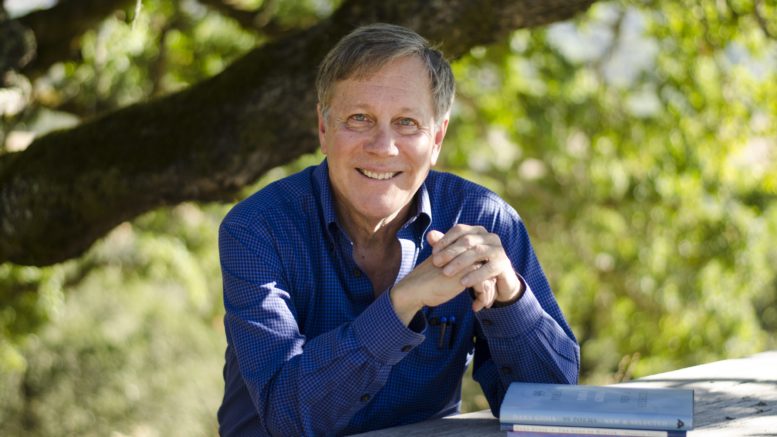
Be the first to comment on "The Man Who Saved Reading"